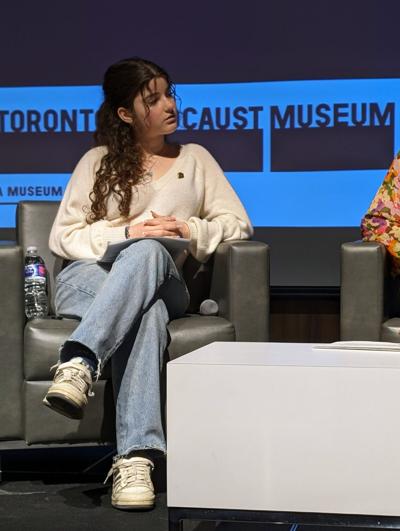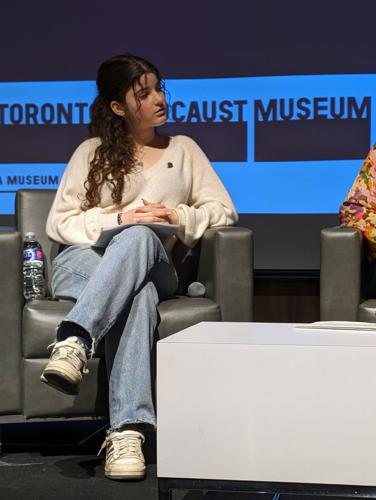If I was asked to pick a theme that defines my education from elementary school to high school it would be anti-bullying.
In school assembly after school assembly, in class after class, teachers and motivational speakers told my peers and me repeatedly: donãt be bystanders to bullying. If you see something say something. And above all, try your best to spread ãsmall acts of kindnessã wherever you go.
The sad thing is, itãs become clear that this lesson did not sink in, especially when it comes to antisemitism.
I am a Jewish high school student in pc28¿ìë½and the founder of an anti-bullying initiative called Voice and Action. Unfortunately, it isnãt small acts of kindness I see in my school community. Itãs acts of hate ã in all sizes.
Most Canadians who consume news probably know the horrible fact that two Jewish schools were shot at recently ã and .
But what many people may not know is that right now itãs hard to be a Jewish kid at just about any school in Canada. It feels like Jewish kids are being blamed for a war in the Middle East that we didnãt start and that we donãt have the authority to end.
When we read about these shootings and other forms of antisemitic violence we forget to ask where these acts of hate come from, and how our apathy fuels them.
Iãll be honest, before the Israel-Hamas war broke out, I didnãt fully realize what antisemitism was. I knew it as an abstract thing, but I had never come face to face with it myself.
Then Oct. 7 arrived and everything changed. I began to notice small hurtful comments from my peers about my religion and culture, and then bigger more painful comments.
One of my peers started calling me ãJewã instead of my name. They thought it would be funny to scream it at me in the hallways. And then another told me: ãI wish Hitler was back,ã and ãI wish your whole family had died in a gas chamber.ãô
On social media it has been just as bad. My peers, even some whose hearts are in the right place, share antisemitic memes and videos.
The bullying and Jew hatred is hard enough but what is almost just as hard to see is the impact this experience has had on my friends. I notice that some of my Jewish classmates who were once proud of their identity now feel uncomfortable with it. They are scared to be ãtooã Jewish in public. And for those of us who are proud to be Jewish and show it, many of our peers shun us.
Meanwhile, the response from school leaders and politicians feels quiet, like the whole country is a bystander to this bullying. This feels so wrong, like a betrayal of the lessons we were raised on.
Why is it that despite all the important talk of anti-bullying and diversity and inclusion in schools, it feels like school boards are ignoring Jewish kids? Why does it always seem like when we speak out about Jew hatred weãre accused of being dramatic?
The truth is, if we seem dramatic it is because this is a dramatic situation. Itãs also an old story.ô
After Oct. 7, I read the interview transcript of a Toronto-area Holocaust survivor named Andrew Salamon. He spoke about his childhood in Hungary in the 1930s, how antisemitism grew slowly at first and then very quickly. He said this about his peers: At first ãthey started to make antisemitic remarks at school.ã Then a year later, ãantisemitism was rampant ãÎ we Jews started to be blamed for everything.ã
It’s not right that Jewish kids in Canada today can relate to the quotes above. Yes, we need to be safe from hate and violence. But thereãs something we need just as much, now more than ever. We need allies, not bystanders.



























